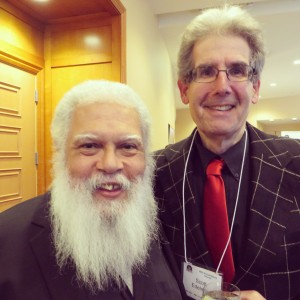(1) FOR LONG DISCUSSIONS ABOUT SHORT STORIES. Standback and Levana Taylor have launched the Short Story Squee & Snark website. It began as a Facebook group and all of the 50+ discussions from the existing group have been imported to the new site.
But it’s safe to assume the real action will be around the newest, most recent story selections. For our first few weeks, we’ve got story suggestions from Chinelo Onwualu, from Charles Payseur, and Abigail Nussbaum. Our first discussion begins tomorrow.
After that, we’ll be pressing on with selections from your humble hosts, Standback and Levana – and suggestions from you. You can follow us on RSS or on Twitter to join along.
(2) OCCASIONAL TIRADER. Julie Phillips profiles “The Fantastic Ursula Le Guin” ini The New Yorker.
To talk to Le Guin is to encounter alternatives. At her house, the writer is present, but so is Le Guin the mother of three, the faculty wife: the woman writing fantasy in tandem with her daily life. I asked her recently about a particularly violent story that she wrote in her early thirties, in two days, while organizing a fifth-birthday party for her elder daughter. “It’s funny how you can live on several planes, isn’t it?” she said. She resists attempts to separate her more mainstream work from her science fiction. She is a genre author who is also a literary author, not one or the other but indivisibly both.
Le Guin can be polemical, prone to what one close friend calls “tirades” on questions she feels strongly about. I once watched her participate in a panel discussion on gender and literature at WisCon, an annual gathering of feminist science-fiction writers, readers, and academics in Madison, Wisconsin. Scowling like a snapping turtle, she sat waiting for illogical remarks, which she then gently but firmly tore to bits. Yet a conversation with Le Guin is often full of comic asides, laughter, and—a particularly Le Guin trait—good-natured snorts. Humor seems to be her way of taking the edge off the polemic, as well as an introvert’s channel of communication. Behind even the lightest remarks, one is aware of a keen intelligence and a lifetime of thought, held back for the purposes of casual conversation.
(3) DEMON WITH A BRASS BAND. Omni’s Joshua Sky interviewed Jason Davis, editor of many Harlan Ellison collections, about the project to digitize and preserve all of Ellison’s writings, in “To Preserve A Demon”.
Writer/editor Jason Davis has a special ambition — to catalog, digitize, edit, correct, annotate and re-publish (or publish for the first time, in some cases) all of Harlan Ellison’s writings. Twenty-six four-foot-wide drawers of typescripts, over 100 feet of paper if stacked, the lifework of a man who is easily one of the most influential and cantankerous authors of the 20th century. Jason is spearheading the Harlan Ellison Books Preservation Project, a grand undertaking “To create definitive versions of all Harlan Ellison’s writings, fiction and non-fiction, to preserve in print for posterity.”…
JS: How did this project come about?
JD: I took over HarlanEllisonBooks.com in 2012. For the most part, I’ve been limited to publishing the previously uncollected, and un-reprinted stuff. His other works were with other publishers. I could do a new collection, like Harlan 101, which contains stories that you’ll find spread across many other Ellison collections. I can do that as a unique volume, and it did very well.
Certain economic factors were built into the original business model before I took over, and — as previously noted — the rights to most of the iconic collections are tied up elsewhere, so because of the need to sell X copies of a given book to make a return, I’ve concentrated on material that wasn’t available in any form elsewhere, with a few exceptions — like Harlan 101 or 8 in 80 by Ellison — where there was some unique aspect to the book that made it worth releasing.
For the Preservation Project, I’m working at the story/essay level, so I’m not stepping on anyone else’s toes. The entirety of Harlan’s work will be digitized and corrected to make sure it’s as the author intends it. In the future, if a publisher comes to him and says, “I want to put out a new edition of Shatterday in hardback,” it will be a simple matter of pushing a button, and a complete text of that collection goes off to the publisher in electronic form after the contract is signed. As it currently stands, that publisher would receive a large box of photocopied typescripts which would have to be scanned or typed into a computer for publication, which leads to inputting errors and a lot of back-and-forth between the publisher’s employees and Harlan’s office via phone, fax and e-mail. One of the goals of this project is to make republishing Harlan’s writings more appealing to publishers — who have their own economic pressures to deal with — by front-loading a lot of the editorial work.
To date the Kickstarter has raised $78,375 of the $100,000 goal.
(4) THE CALCULUS OF ONLINE BOOK SHOPPING. After Max Florschutz sells you the book, he’ll try to sell you on reviewing that book on Amazon.
Now, there’s some truth to why we think this way, after all. I’m not saying that those that pass over a book with only three reviews are being subconsciously manipulated. Rather that the reasoning for such is so valid and ingrained that we as consumers tend to let it subconsciously spill into all sorts of areas.
So, getting back to that review number, it turns out that it’s really important, because people recognize that a higher number of reviews is a good thing. It means a wider variety of readers purchased the product and then left their opinion. And if the book was poor, even with a few outliers that enjoyed it immensely and gave it high reviews, the average rating would reflect that. In this manner, a book that has five stars at ten reviews is, to many, less trustworthy and less likely to be a truly good read than a book that has three stars but three hundred reviews.
And this compounds. The higher the number of reviews, the greater the variety among those leaving them, and the greater chance that the average rating is, the way a prospective reader sees it, accurate. Which therefore increases the chance that they will then seriously consider purchasing the book.
(5) NO TWO SNOWFLAKES ARE ALIKE. Camestros Felapton reviews the reviewer: “MetaReview: Dave Truesdale Reviews Diabolical Plots #21”.
That the reviewer frames his review around a comment by the author—the “unjust violent death of Michael Brown”—and then gives the reader of Truesdale review a totally different narrative that is nothing short of intellectual dishonesty. Truesdale’s review fails on literary grounds (the shift of focus from a fictional story about emotional pain in the face of perceived injustice and violence to Truesdale’s evaluation of whether the author is justified in feeling angry about a real-world event), and from an error in judgment by Truesdale in attempting to justify a judicial killing, which not only reveal the weakness in the review itself, but which highlights how the reviewer’s own strong prejudice in the matter clouded his thinking, and obstructed his capacity to give a professional review.
(6) TREVOR OBIT. Irish novelist, playwright and short story writer Sir William Trevor (1928-2016) died November 20 reports The Bookseller. He won the O. Henry Prize four times and the Whitbread Award three times; he was also nominated for the Booker Prize five times.
The Internet Science Fiction Database lists his genre work as:
Novels
The Children of Dynmouth (1976)
Shortfiction
Miss Smith (1967)
The Only Story (1971)
The Love of a Good Woman (1972)
George and Alice and Isabel (1973)
Visions of Hell (1974)
Mrs. Acland’s Ghosts (1975)
The Death of Peggy Morrissey (1975)
Broken Homes (1977)
The Raising of Elvira Tremlett (1977)
Autumn Sunshine (1980)
(7) CLOWES OBIT. Jonathan Clowes, Doris Lessing’s agent, has died at the age of 86. The Bookseller published a tribute:
After founding Jonathan Clowes Ltd. in 1960, Clowes assembled a select and high-powered client list including international bestseller Len Deighton, novelist, poet and playwright Maureen Duffy, Nobel Prize winner Doris Lessing, novelists Sir Kingsley Amis, Elizabeth Jane Howard and Brian Freemantle.
His clients also included television writers David Nobbs, Carla Lane and Dr David Bellamy.
Clowes took an unlikely path to become one of London’s most renowned and respected literary agents, having left grammar school aged 15 and worked in a number of different trades, from gardener to decorator, even going on to serve time in prison for his stance as a conscientious objector.
(8) TODAY IN HISTORY
- November 21, 1942: “Tweety Bird” debuted
(9) TODAY’S BIRTHDAY BOYS
- Born November 21, 1924 – Christopher Tolkien
- Born November 21, 1944 – Harold Ramis
(10) BEASTLY CAPITALISM. ScienceFiction.com has a question: “Weekend Box Office (11/18-11/20): ‘Fantastic Beasts’ Did Fantastically… But Fantastically Enough?”
It’s no surprise that ‘Fantastic Beasts and Where to Find Them’ topped the box office charts this weekend, with $75M in the US and $218.3M globally. This film kicks off a series of five projected movies– with the first sequel already scheduled to arrive on November 16, 2018– all penned by J.K. Rowling, the creator of ‘Harry Potter’, but did studio Warner Brothers bite off more than they could chew? That’s what some insiders are wondering, as this movie’s opening is below that of other franchise players like ‘Doctor Strange’ ($85M opening weekend) and WB’s own ‘Suicide Squad’ ($133.6M… and that was considered a disappointment).
(11) ATTENTION BAKER STREET REGULARS. Sherlock Season 4 is almost upon us. Reportedly, for the first time shows in the UK and the US will be broadcast on the same dates.
Sherlock will return in “The Six Thatchers” on January 1, 2017 on MASTERPIECE on PBS.
Coming in 2017, Sherlock will return with three brand-new episodes that promise laughter, tears, shocks, surprises and extraordinary adventures.
Season four begins with the mercurial Sherlock Holmes (Benedict Cumberbatch), back once more on British soil as Doctor Watson (Martin Freeman) and his wife Mary (Amanda Abbington) prepare for their biggest challenge yet: becoming parents.
(12) ANOTHER ITEM FOR THE WISH LIST. Dread Central is making a list and getting it wet.
Leave it to Mondo to tug on our nostalgic heartstrings just before Christmas. They’re releasing a vinyl version of the soundtrack to Joe Dante’s Gremlins, and the packaging literally changes when exposed to water and sunlight… just like the titular creatures.
(13) THREE STOOGES AT THE ALEX. Glendale’s Alex Theatre hosts the 19th Annual The Three Stooges® Big Screen Event this Saturday at 2:00 & 8:00 p.m.. Order tix online here.
The LA Weekly has named The Affordable Curly Care Act: Poking Medicine in the Eye Since 1933 their “Pick of the Week.” What more can we say? How about, “Buy your tickets early to avoid the lines at the box office.”
A special surprise bonus will be shown in addition to this lineup of five classic Stooges shorts:
- FROM NURSE TO WORSE (1940 – Jules White)
- CASH & CARRY (1937 – Del Lord)
- SOME MORE SAMOA (1941 – Del Lord)
- SCRAMBLED BRAINS (1951 – Jules White)
- ALL THE WORLD’S A STOOGE (1941 – Del Lord)
(14) WHAT TOOLS THESE MORTALS BE. Mark-kitteh writes: “A performance of The Tempest with a live motion-capture Ariel on stage? I’m sure some will say the Bard will be spinning in his grave, but I suspect he’d just be updating his list of stage directions to include ‘exeunt stage upwards’,” — “The Tempest review: Real-time digital avatar brews storm in a teacup” at ArsTechnica.
(15) ANYTHING YOU CAN DO. ScreenRant knows “Everything Supergirl Can Do That Superman Can’t”.
Supergirl is more than a chip off the ol’ Krypton block. While her younger cousin gets all the credit for bench-pressing the earth and saving the universe, Supergirl’s individual strengths have been sorely undervalued….
- She Can Shapeshift
Superman is dead. This is the reality of the post-Crisis “pocket universe” where Lex Luthor was a good guy who bet the ranch on recreating his long lost love, Lana Lang. Lex’s advanced form of AI was called the “protoplasmic matrix,” or just “Matrix” for short. Indeed, Luthor’s weird science led to the recreation of his lady love, now called Matrix– an unholy hodgepodge containing the memory of Lana with the Kryptonian specs of Superman (whom he knew about thanks to his otherworldly technology).
In addition to being almost as strong as Kal-El, this new creation had the powers of invisibility, telekinesis, and shapeshifting, which she took full advantage of by morphing into Supergirl 2.0. In a battle against General Zod, Faora, and Quex-UI, Matrix/Supergirl held her own but ultimately had to call on the support of Superman to take down the triumvirate. Though the pair defeated the Krypton criminals, the pocket universe was basically destroyed, and the new shapeshifting Matrix was taken back to the mainline DC Universe where she became the first post-Crisis Supergirl.
(16) ANOTHER MILLION BRICKS IN THE WALL. How many LEGO bricks does it take to build these various science fictional structures? This infographic from earlier in the year has the theoretical answers.

How Many Lego Would It Take To Build Sci-Fi Megastructures Created By: Ebates
[Thanks to Mark-kitteh, Martin Morse Wooster, JJ, John King Tarpinian, and Andrew Porter for some of these stories. Title credit goes to File 770 contributing editor of the day Robert Whitaker Sirignano.]



